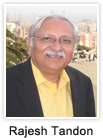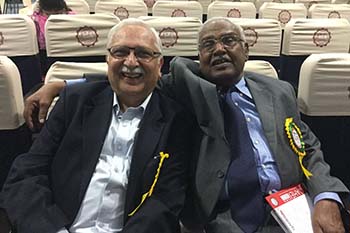 Debates around quality assurance, improvements and excellence in higher education have become shrill of late. Higher Education Institutions (HEIs) are being called upon to pay attention to quality issues rather urgently. Policy-makers, government agencies and leadership of HEIs are concentrating on developing systems, mechanisms, indicators and standards to assure and enhance quality. Despite such efforts, there appears to be considerable ambiguity in defining and measuring quality of HEIs in India, and universally.
Debates around quality assurance, improvements and excellence in higher education have become shrill of late. Higher Education Institutions (HEIs) are being called upon to pay attention to quality issues rather urgently. Policy-makers, government agencies and leadership of HEIs are concentrating on developing systems, mechanisms, indicators and standards to assure and enhance quality. Despite such efforts, there appears to be considerable ambiguity in defining and measuring quality of HEIs in India, and universally.
A recent conference on this theme brought out these issues in considerable depth. In the Indian system, National Assessment & Accreditation Council (NAAC) and National Board of Accreditation (NBA) are two prevalent systems for assessment of quality of various components of higher education. NAAC is an autonomous body set up by UGC, and NBA is an autonomous body under AICTE (primarily focusing on technical education).

Pic: Dr Rajesh Tandon, Co-Chair, UNESCO Chair in CBR (left), and Prof Ananda Krishnan, Chairman, IIT-Kanpur, at the National Seminar on Quality Assurance in Higher Education Intitutions (QAHEI-2017), at KL University, Vijayawada, Andhra Pradesh
These two systems primarily assess quality from the vantage point of capacities and performance of HEIs in terms of teaching, research and infrastructure. Teaching indicators generally comprise of teacher-student ratios; research capacity is measured on volume of funding and publications; infrastructure criteria are classrooms, IT, library, etc.
However, such an approach to assessing quality of HEIs essentially looks inwards into the national (or international ) systems of higher education. Comparison with other HEIs is undertaken through ranking systems, and quality is assumed to be reflected through such rankings.
In our view, higher education is a public good. HEIs must serve public goods, irrespective of model of funding adopted for their functioning. Viewed in this manner, HEIs must measure up to externally determined criteria of societal well-being. Do HEIs contribute to well-being of society they are part of? Do they fulfil social responsibility as HEIs?
Social responsibility lens on quality produces somewhat different criteria and standards. The purpose of teaching is to prepare ethical global citizens; science must serve society, and service should be empowering to communities hitherto excluded (Hall et. al., 2015). An engaged, externally oriented and societally open stance of HEIs can support such outcomes of social responsibility, and indeed quality (Tandon et. al., 2016).
The manner in which society is used as resource for learning-teaching can enable students to learn citizenship in everyday life. Undertaking responsive and responsible research that serves societal needs (knowledge society, not merely knowledge economy) carried out in an engaged manner can support students and faculty to find innovative solutions to challenges facing society (GUNi, 2014) HEIs can become anchor institutions of their societies by facilitating public dialogues across multiple stakeholders and reclaiming public spaces for all.
Despite pressures for global ranking and accreditation from peers and professionals, it is important that HEIs also take into consideration local societal constituencies. How can HEIs redefine their curriculum and pedagogy, research priorities and methodology, service and support activities so as to contribute to realisation of Sustainable Development Goals (SDGs)?(GUNi, 2017)
Benchmarking social responsibility in HEIs in this manner can also simultaneously contribute to quality for both individuals (students and faculty) inside the campus and collectives and constituencies around the campus. Of the twelve parameters of accreditation listed by NBA, engineering knowledge is only one of them. Students can learn others like communication, understanding different perspectives, problem analysis, ethics, environmental sustainability and team work through socially engaged teaching, research and service (Hall & Tandon, 2017).
The conference hosted by K L University last week raised these, and many related, questions for our consideration. (https://unescochair-cbrsr.org/ )
Dr Rajesh Tandon
References
Hall, B. & Tandon, R. (2017). Decolonization of knowledge, epistemicide, participatory research and higher education. Research for All, 1(1), 6-19 [Also available online at: https://www.ingentaconnect.com/contentone/ioep/rfa/2017/00000001/00000001/art00002 ]
Hall, B., Tandon, R., & Tremblay, C. (2015). Strengthening Community University Research Partnerships: GLOBAL PERSPECTIVES. PRIA/University of Victoria: New Delhi/Victoria
GUNi (Ed.). (2017). Towards a socially responsible university: Balancing the global with the local (Higher Education in the World 6) [Forthcoming]
GUNi (Ed.). (2014). Knowledge, Engagement and Higher Education: Contributing to Social Change (Higher Education in the World 5). Hampshire (UK)/New York (USA): Palgrave Macmillan
Tandon, R., Singh, W., Clover, D., & Hall, B. (2016). Knowledge Democracy and Excellence in Engagement. IDS Bulletin: Engaged Excellence, 47 (6), 19-35 [Also available online at: https://opendocs.ids.ac.uk/opendocs/bitstream/handle/123456789/12748/IDSB47.6_10.190881968-2016.197.pdf?sequence=1&isAllowed=y ]




